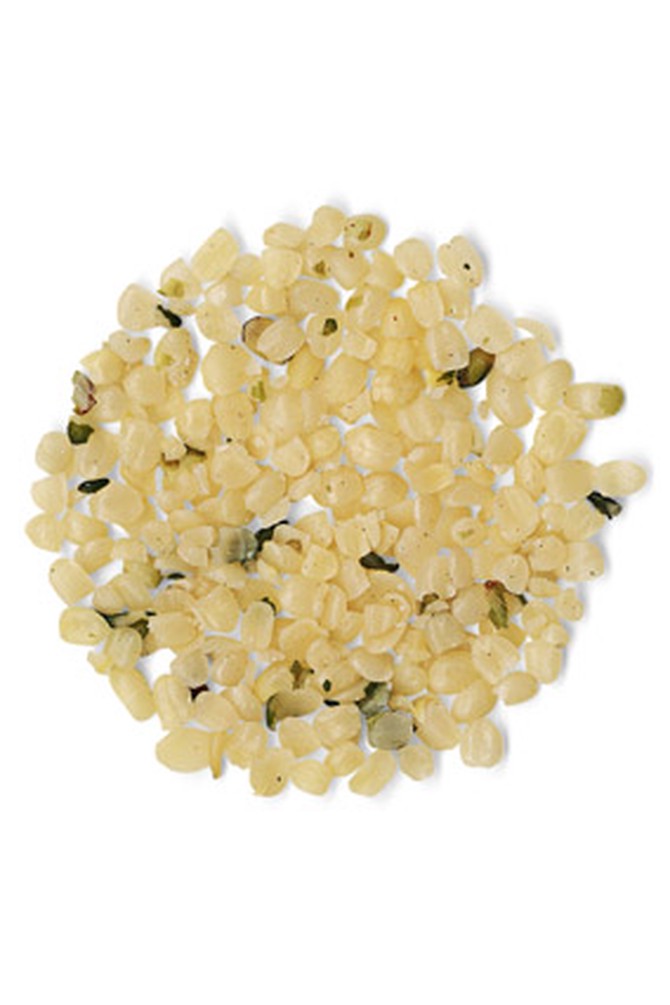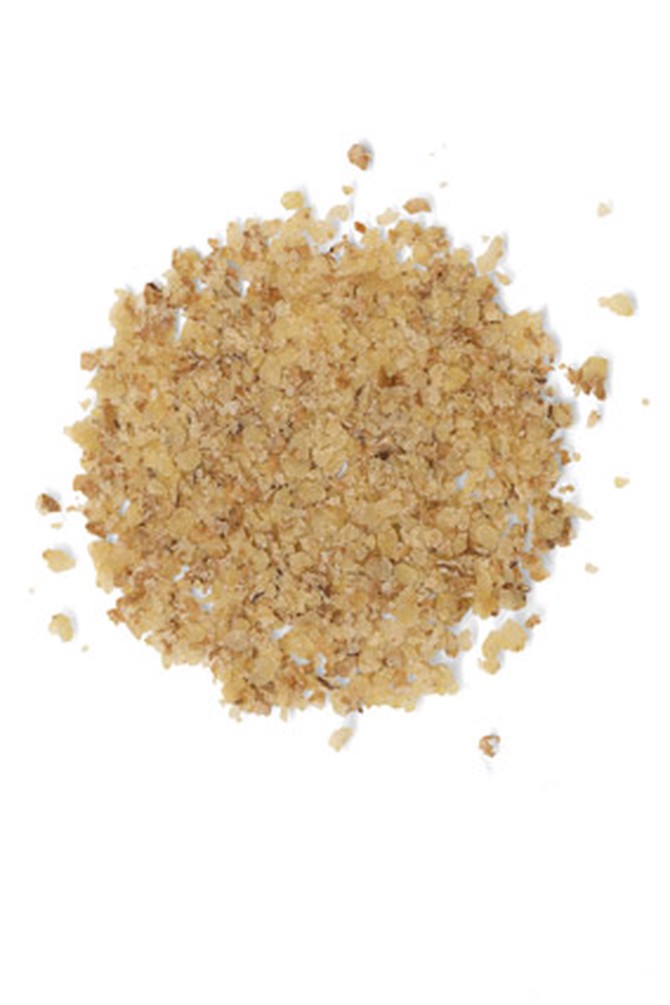4 Superfood Seeds to Add to Your Diet Today
Proof that good things come in teeny, tiny packages.
By Jessica Girdwain

Photo: Mauricio Alejo
"Big bang for your buck"—that's how dietitian Patricia Bannan describes seeds. "All the nutrients needed to nourish a new plant are bundled into each little kernel," explains the author of Eat Right When Time Is Tight. "So every seed is a concentrated dose of vitamins, minerals, fiber, and essential fatty acids." Here are four seeds Bannan says are worth digging up to add flavor, texture, and a potent antioxidant kick to your meals. (Check your local grocery store or bobsredmill.com.)
Perks
Some studies suggest that flaxseed may help prevent everything from heart disease to cancers (like breast and ovarian) that are sensitive to hormones; and a 2010 study in The Journal of Nutrition suggests that it may even help reduce belly fat. Two of flax's secret weapons: omega-3s and phytoestrogens called lignans (flax has more of these plant compounds than any other food).
Prep
For a nutritious breakfast smoothie, blend 1 Tbsp. ground flaxseed, 1 Tbsp. flax oil, 1 cup carrot juice, 1 banana, 1 Tbsp. avocado, 1 kale leaf with the stem removed, and ice.
Flaxseeds
Nutty-flavored seeds that provide the most nutrition when ground.Perks
Some studies suggest that flaxseed may help prevent everything from heart disease to cancers (like breast and ovarian) that are sensitive to hormones; and a 2010 study in The Journal of Nutrition suggests that it may even help reduce belly fat. Two of flax's secret weapons: omega-3s and phytoestrogens called lignans (flax has more of these plant compounds than any other food).
Prep
For a nutritious breakfast smoothie, blend 1 Tbsp. ground flaxseed, 1 Tbsp. flax oil, 1 cup carrot juice, 1 banana, 1 Tbsp. avocado, 1 kale leaf with the stem removed, and ice.

Photo: Mauricio Alejo
Hemp Seeds
Similar in taste to sunflower seeds and pine nuts.
Perks
Hemp seeds are an excellent source of essential fatty acids and contain all nine essential amino acids, which makes them a complete protein, like egg whites and soy. Plus: Just one ounce of hemp provides 45 percent of your daily magnesium requirement. According to a 2010 study, a diet rich in magnesium can slash diabetes risk by almost half, possibly because it increases insulin sensitivity.
Prep
Philadelphia dietitian and chef Katie Cavuto Boyle uses the seeds in a tasty dip: Puree 1 Tbsp. ground hemp seeds, 2 Tbsp. store-bought pesto, 2 Tbsp. lemon juice, and 1 can cannellini beans.
Perks
Hemp seeds are an excellent source of essential fatty acids and contain all nine essential amino acids, which makes them a complete protein, like egg whites and soy. Plus: Just one ounce of hemp provides 45 percent of your daily magnesium requirement. According to a 2010 study, a diet rich in magnesium can slash diabetes risk by almost half, possibly because it increases insulin sensitivity.
Prep
Philadelphia dietitian and chef Katie Cavuto Boyle uses the seeds in a tasty dip: Puree 1 Tbsp. ground hemp seeds, 2 Tbsp. store-bought pesto, 2 Tbsp. lemon juice, and 1 can cannellini beans.

Photo: Mauricio Alejo
Buckwheat Groats
Soft seeds with a sweet, earthy flavor when toasted.
Perks
A cup of cooked groats contains just 155 calories and five grams of satiating fiber. "Studies have found that when people increase their fiber intake by 14 grams a day, they lose an average of four pounds in four months," says Bannan. Buckwheat is also rich in prebiotics, which provide sustenance for good bacteria in the body that improve digestion and bolster immunity.
Prep
Toast the groats in a skillet with oil to bring out their flavor. Then cook them with water as you would rice (2 cups water to 1 cup groats); and mix in goat cheese, basil, and lemon zest.
Perks
A cup of cooked groats contains just 155 calories and five grams of satiating fiber. "Studies have found that when people increase their fiber intake by 14 grams a day, they lose an average of four pounds in four months," says Bannan. Buckwheat is also rich in prebiotics, which provide sustenance for good bacteria in the body that improve digestion and bolster immunity.
Prep
Toast the groats in a skillet with oil to bring out their flavor. Then cook them with water as you would rice (2 cups water to 1 cup groats); and mix in goat cheese, basil, and lemon zest.

Photo: Mauricio Alejo
Wheat Germ
The flaky center of wheat kernels.
Perks
This classic health food deserves its reputation: Wheat germ is packed with 23 nutrients, including many essential minerals and more antiaging tocopherols (a type of E vitamin) than any other plant. Two tablespoons supply about 12 percent of your daily value of folate, the B vitamin believed to protect against colon cancer, stroke, cardiovascular disease, and dementia.
Prep
Sprinkle it on cereal, or use Boyle's recipe for a zesty chicken salad dressing: 1 Tbsp. wheat germ, 1 Tbsp. curry powder, 1 tsp. cumin, 1 tsp. mustard powder, and 1 cup nonfat Greek yogurt.
Next: 6 new superfoods you definitely haven't tried before
Perks
This classic health food deserves its reputation: Wheat germ is packed with 23 nutrients, including many essential minerals and more antiaging tocopherols (a type of E vitamin) than any other plant. Two tablespoons supply about 12 percent of your daily value of folate, the B vitamin believed to protect against colon cancer, stroke, cardiovascular disease, and dementia.
Prep
Sprinkle it on cereal, or use Boyle's recipe for a zesty chicken salad dressing: 1 Tbsp. wheat germ, 1 Tbsp. curry powder, 1 tsp. cumin, 1 tsp. mustard powder, and 1 cup nonfat Greek yogurt.
Next: 6 new superfoods you definitely haven't tried before
From the March 2012 issue of O, The Oprah Magazine

